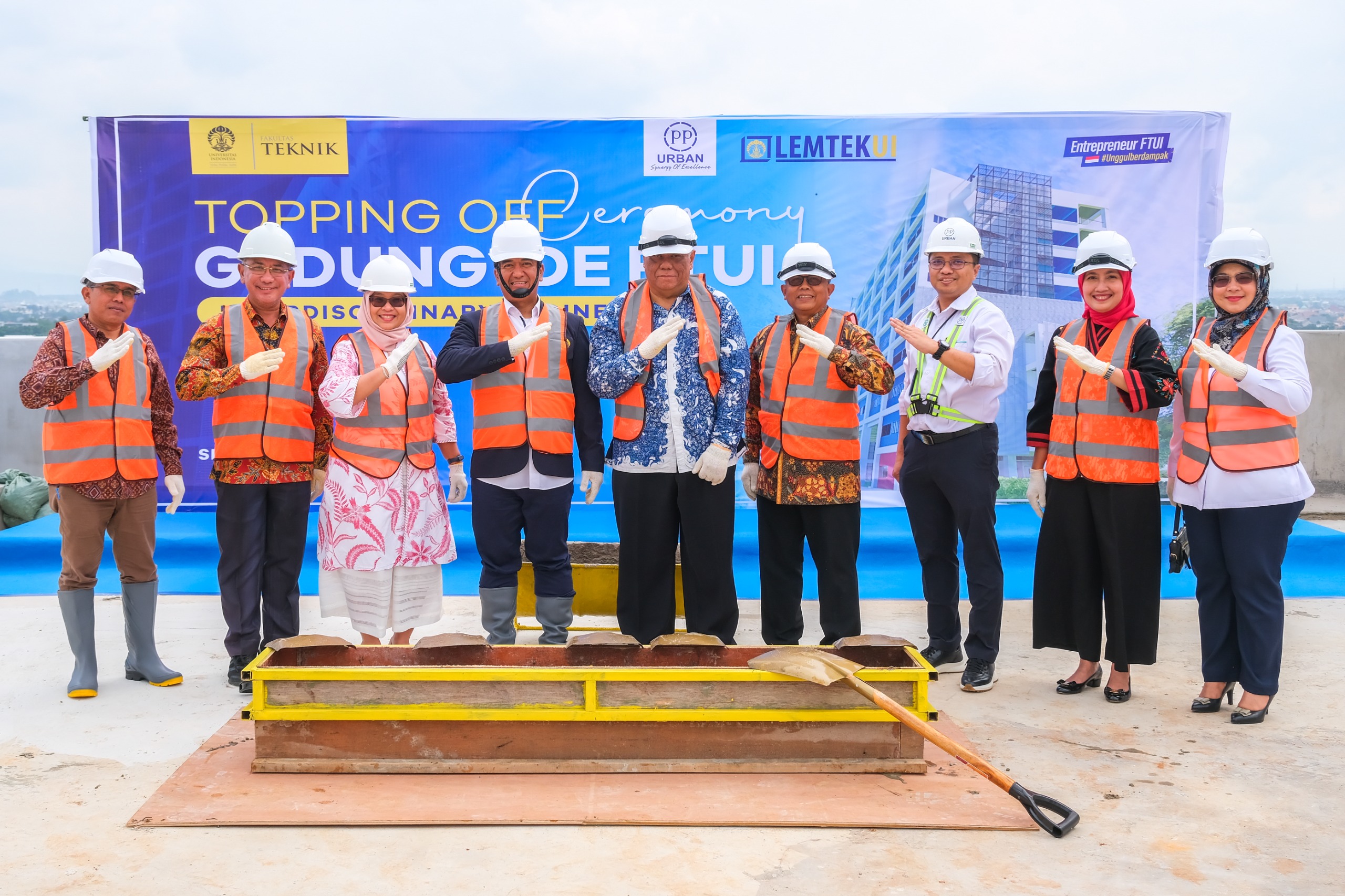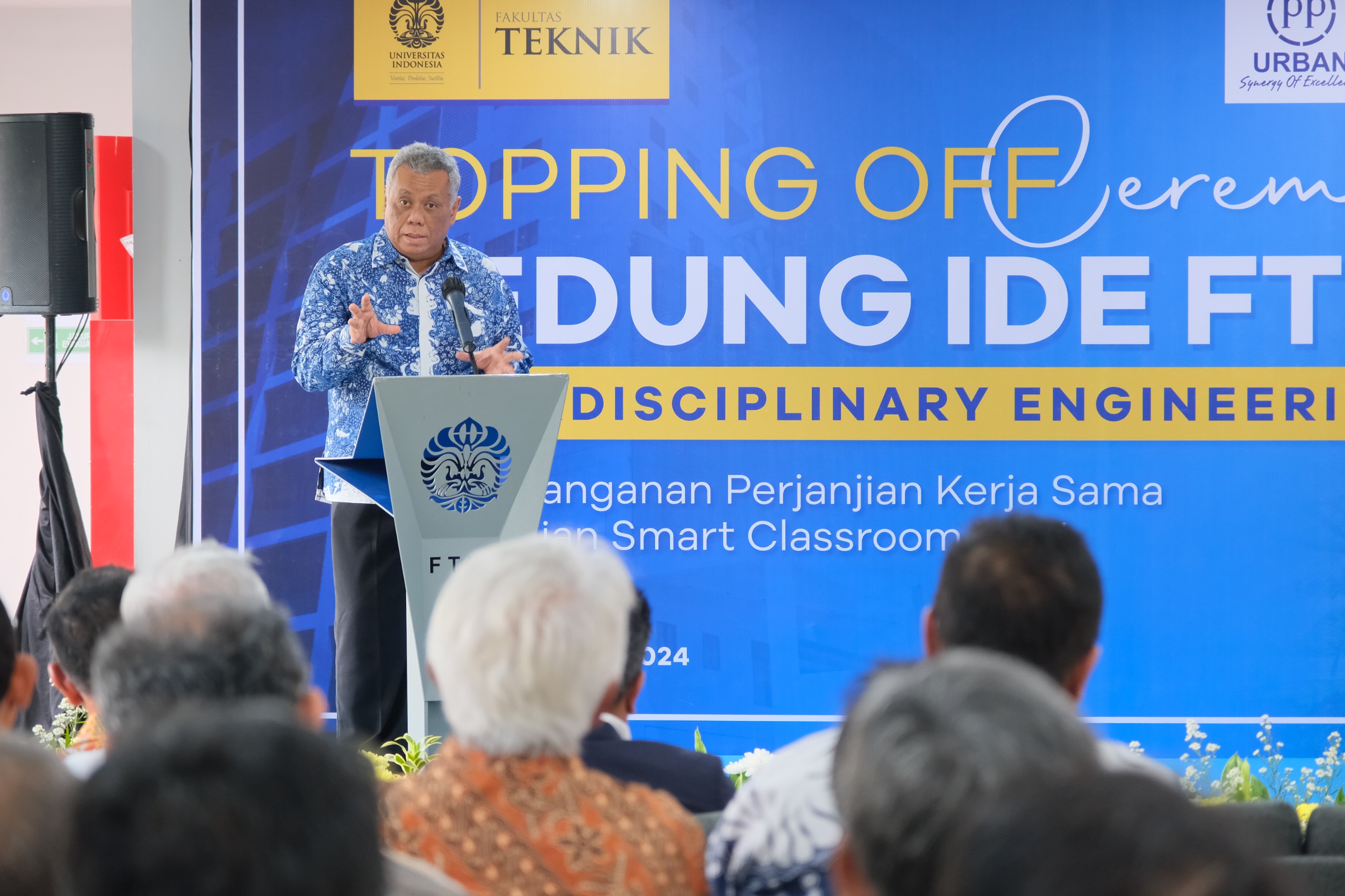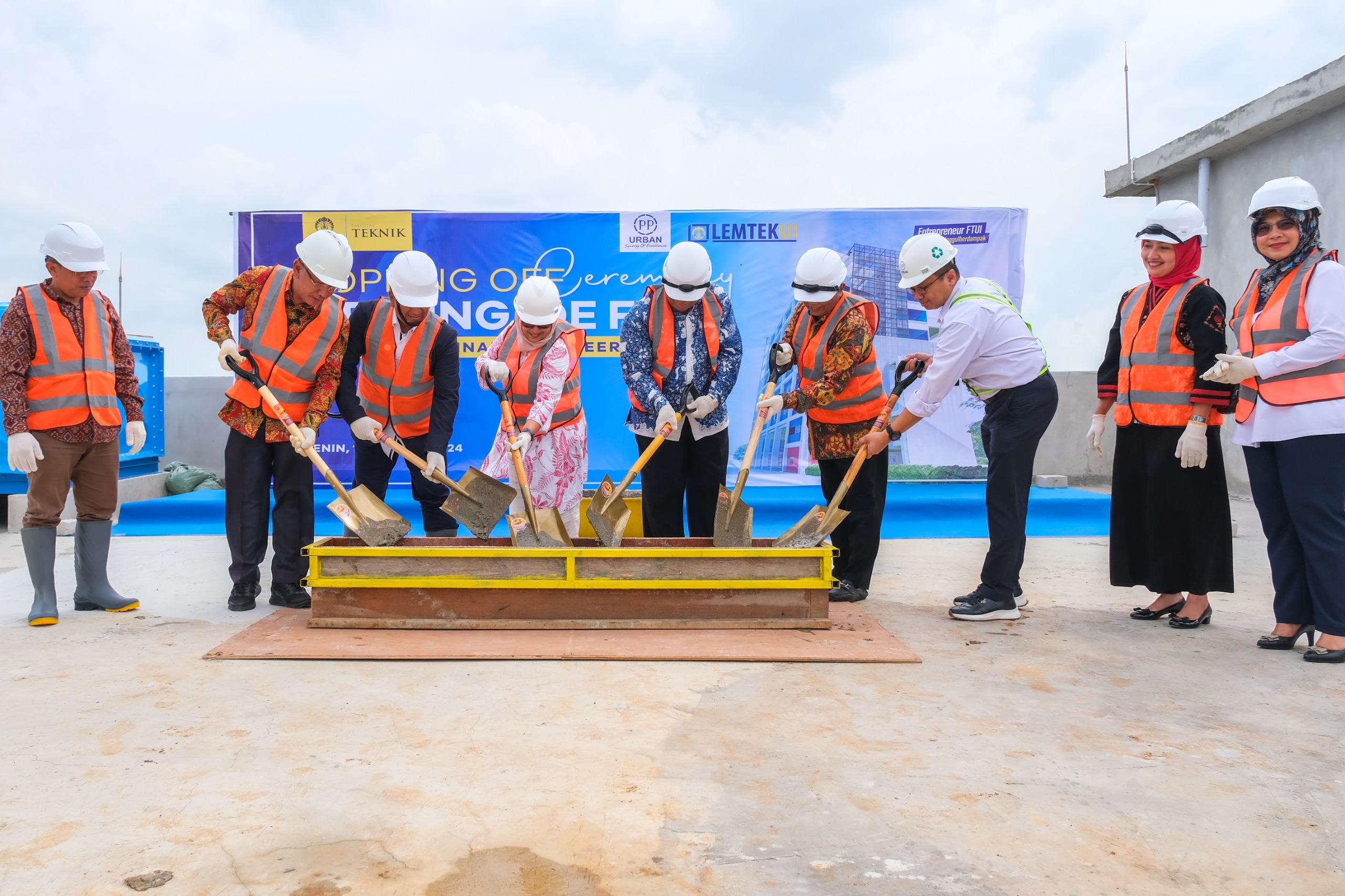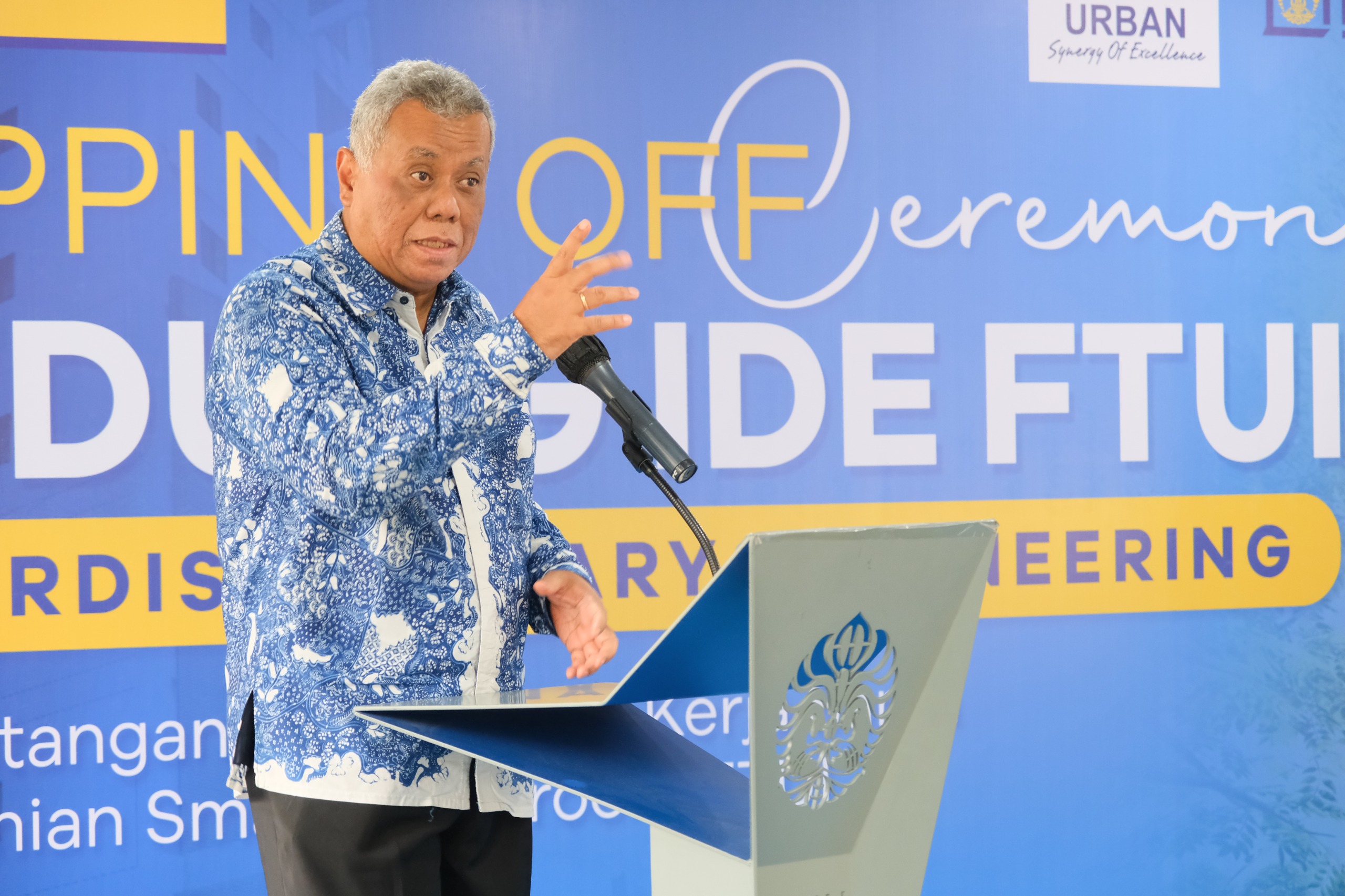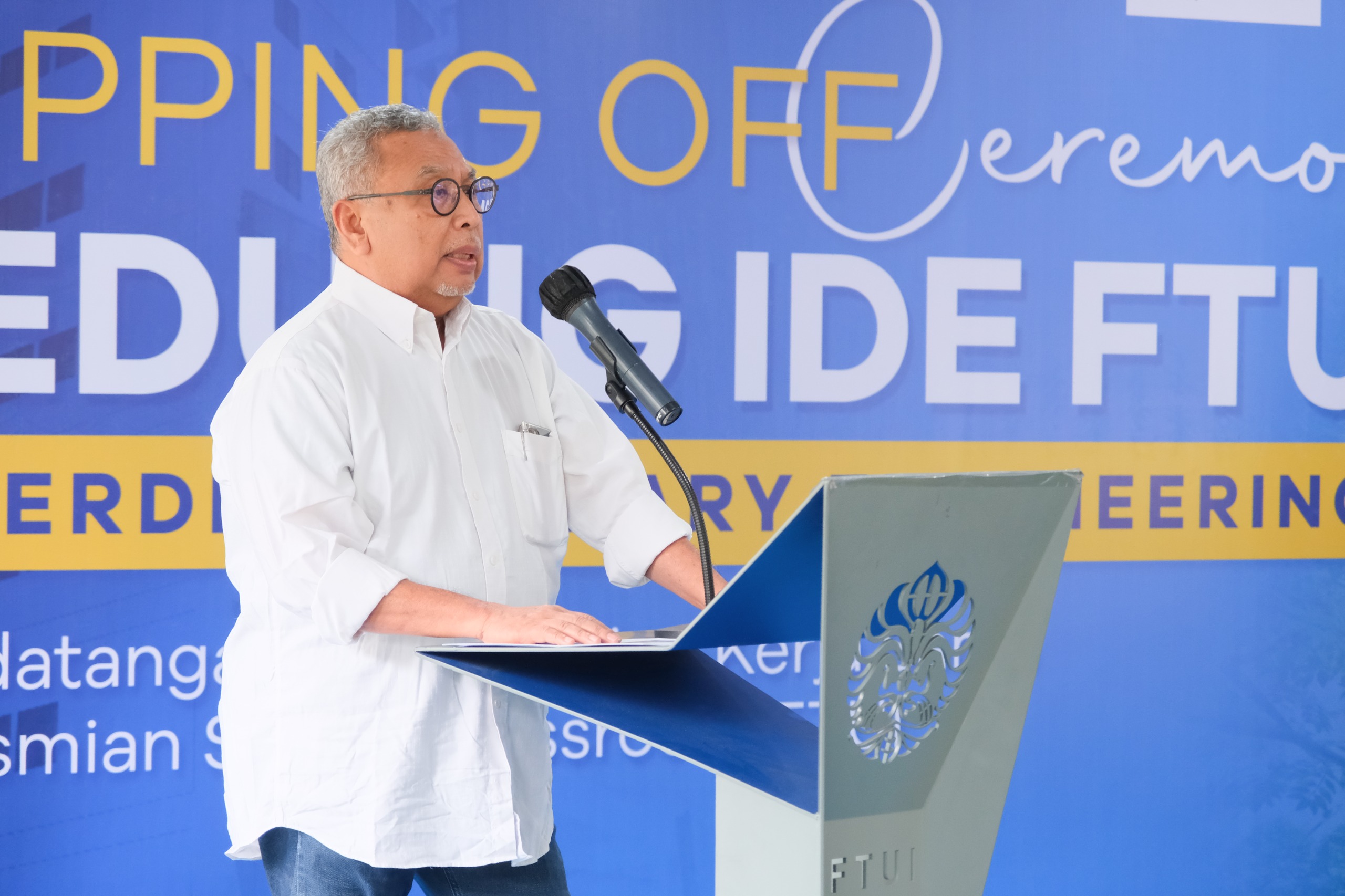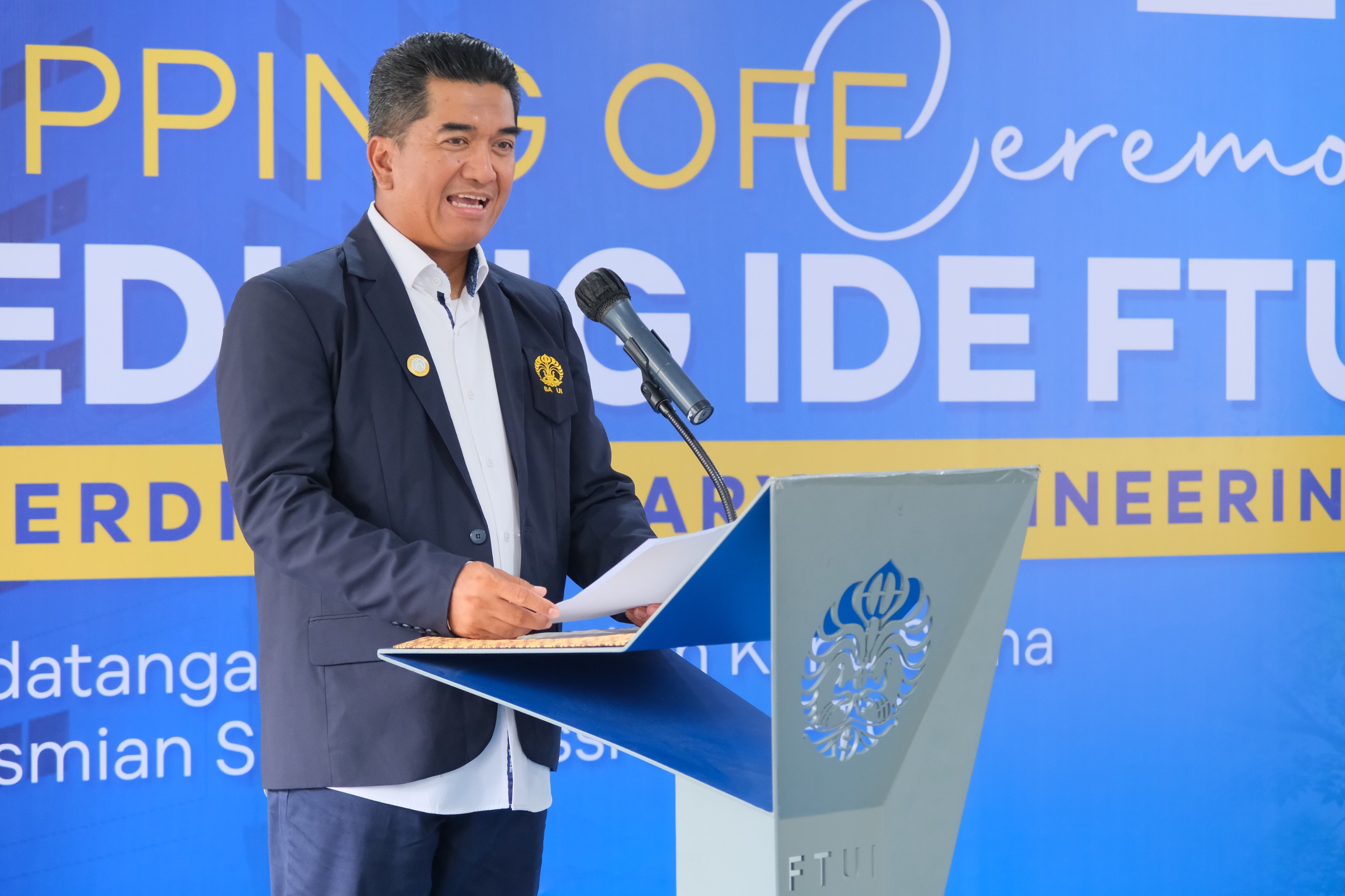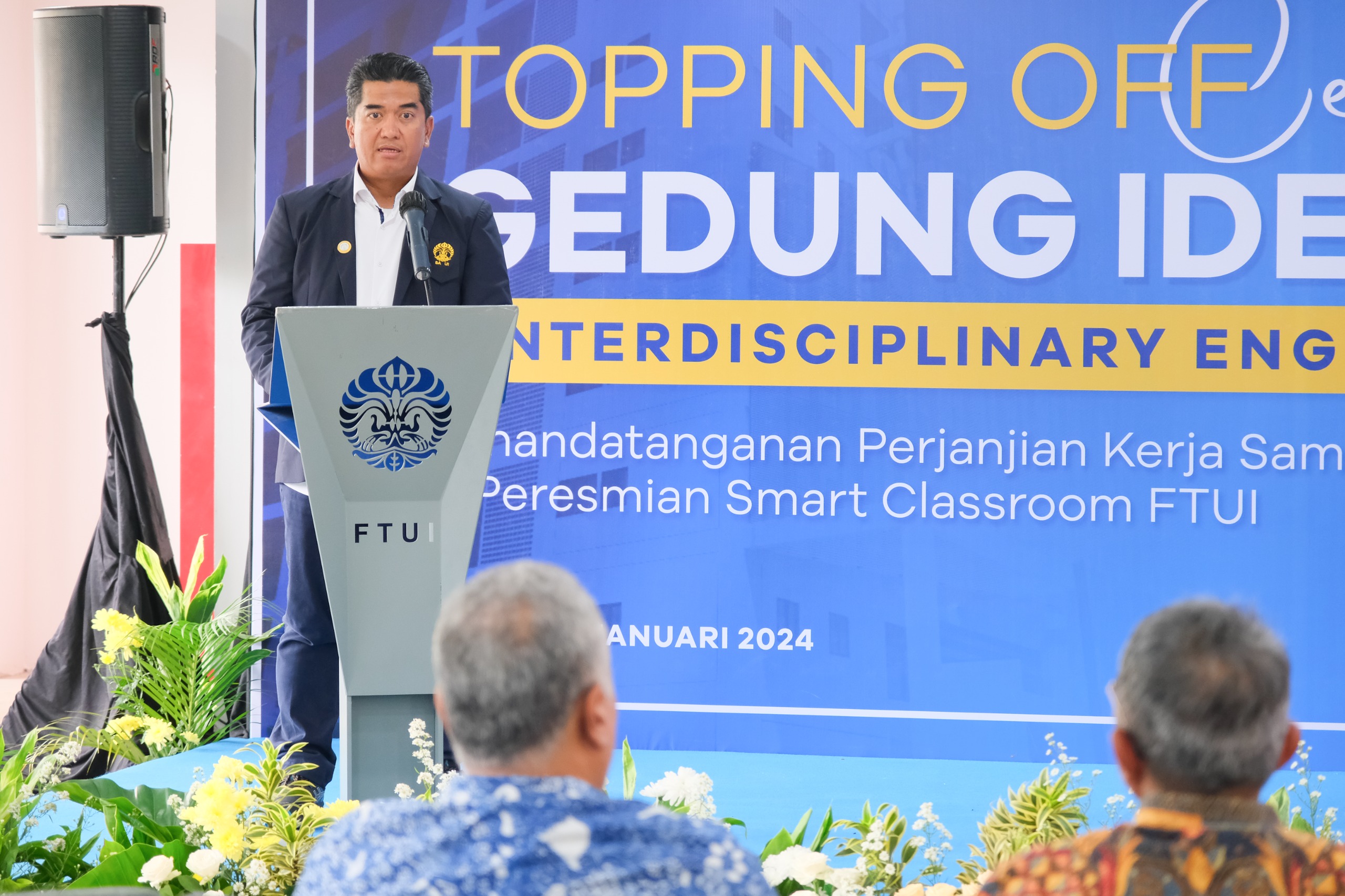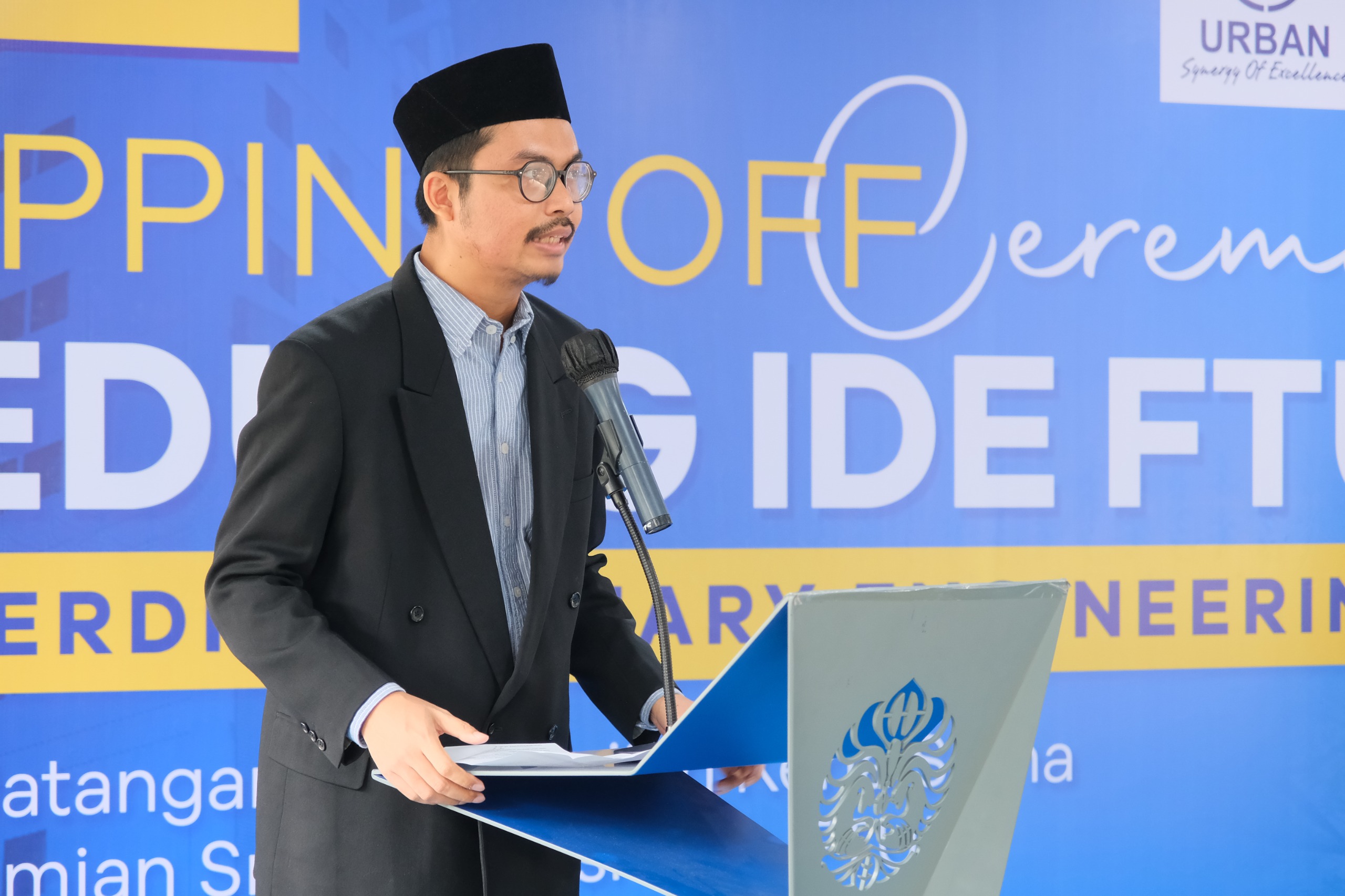The Faculty of Engineering (FT) at the University of Indonesia (UI) conducted the topping-off ceremony for the construction of the Interdisciplinary Engineering Building (IDE) on Monday (15/01) at the UI Depok campus. The topping-off ceremony was led by the UI Rector, Prof. Ari Kuncoro, S.E., M.A., Ph.D.; Vice Rector for Research and Innovation, drg. Nurtami, Ph.D., Sp,OF(K).; Vice Rector for HR and Assets, Prof. Dr. Ir. Dedi Priadi, DEA.; FTUI Dean, Prof. Dr. Ir. Heri Hermansyah, S.T., M.Eng. IPU.; and PT PP Urban Operations Director, Dian Adi Cahyono.
In his speech, UI Rector Prof. Ari Kuncoro stated, “The IDE building is not just a physical structure; it is a symbol of collaboration and innovation. It is a significant step in creating a learning environment that supports interdisciplinary education. This interdisciplinary academic activity is expected to produce graduates with broad, critical, innovative, collaborative perspectives and research outputs in the form of highly reputable scientific publications, policy briefs, and outstanding innovation products, which can compete globally.”
FTUI Dean Prof. Heri Hermansyah mentioned that the IDE building is prepared to be the home for future engineers. “In 2023, FTUI officially established three interdisciplinary engineering institutes, namely the Institute for Urban Planning and Smart Cities (IUS), the Institute for Energy Transition (IET), and the Institute for Biosystems and Bioengineering (IBB). These three institutes play a role in synergizing interdisciplinary education and research activities on specific themes: urban and regional planning, energy transition, and biological engineering. The IDE building will house these three interdisciplinary institutes, as well as advanced labs and research centres under these institutes.”
Targeted for completion in March 2024, the IDE FTUI building is constructed with eight floors covering an area of 6,958 m2. The building adopts a green building concept, emphasizing energy-efficient lighting and cooling, water and air circulation, and sustainable building materials. The implementation of the green building concept includes the use of building materials partially derived from recycled materials and environmentally friendly wood. The building incorporates water harvesting technology, solar panels, and waste processing in line with a zero-waste policy. The building also allocates 45% of the ground floor area, equivalent to 355.90 m2, for green recovery, which will be transformed into a garden and plaza.
The Institute for Urban Planning and Smart Cities (IUS) serves as an interdisciplinary research centre in the field of smart urban and regional planning. IUS will offer solutions for stakeholders to address global urban issues and create an inclusive city for the welfare of society. IUS integrates the activities of two research centres, namely the Center for Sustainable Infrastructure Development (CSID) and the Research Center for Advanced Vehicle (RCAVe), supported by the Urban Nexus and Smart Cities Lab (UNSCL), an innovative laboratory for smart city development.
The Institute for Energy Transition (IET) is an interdisciplinary research hub focused on energy transition. IET focuses on researching solutions to national and global energy-related issues related to climate change by accelerating the transition of the energy system from fossil-based to renewable and low-carbon energy to achieve net-zero emissions targets. IET will synergize two research centres, the Tropical Renewable Energy Center (TREC) and the Advanced Materials Research Center (AMRC), as well as having two advanced labs, the Energy Transition Lab (ETL) and the Sustainable Energy Systems Lab (SESL).
The Institute for Biosystems and Bioengineering (IBB) serves as an interdisciplinary research hub in the field of biological engineering. IBB aims to improve the quality of life by developing materials, devices, and technology supported by research and natural resources native to Indonesia. In the future, IBB will integrate the activities of two research centres, the Research Center for Biomedical Engineering (RCBE) and the Research Center for Biomass Valorization (RCBV), with two advanced labs, the Advanced BioEngineering Lab (ABEL) with biological safety levels 1 and 2, and the Biological Systems Engineering Lab (BSEL).
The topping-off ceremony for the IDE Building was also attended by Senior Vice President of PT Bank Mandiri Aland Rinni Patity; President Director of PT. Airbus Indonesia Nusantara, Dani Adriananta; Director of PT Kamata Inti Persada, Cindar Hari Prabowo; Vice President of Corporate Social Responsibility (CSR) & SMEPP Management of PT Pertamina (Persero), Fajriyah Usman; and UI leadership.
***
Office of Public Communication
Faculty of Engineering Universitas Indonesia

